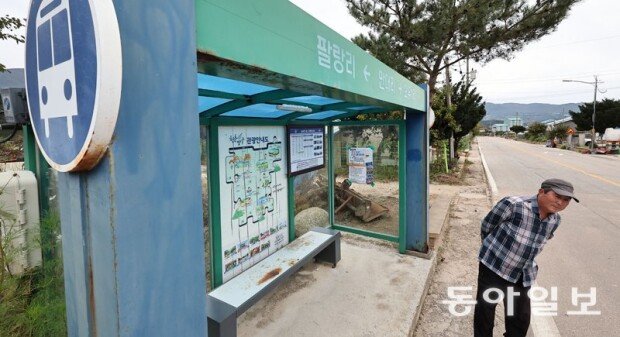Seniors in 'transportation desert' areas worry about driver’s license return
Seniors in 'transportation desert' areas worry about driver’s license return
Posted October. 14, 2024 09:00,
Updated October. 14, 2024 09:00

"In our neighborhood, which is a 'transportation desert,' if you return your driver's license, you have no choice but to drive without a license. You have to drive to survive here.'"
Kim Ki-seong (63), whom I met in Mandae-ri, Yanggu County, Gangwon Province on Oct. 6, said, “I do have the thought of returning my driver's license before I become a burden to others,” but he added, “Without a license, I can't continue my livelihood.” Kim, who has been farming potatoes for over 30 years, expressed his concern.
With Korea entering a super-aged society next year, where one in five citizens will be over the age of 65, traffic accidents involving elderly drivers have surged by nearly 30% in the past three years. In response, 220 out of 243 local governments nationwide have implemented the 'Voluntary Driver's License Return Program for the Elderly,' which provides a certain amount of subsidy if they give up their licenses. However, the return rate remains at just 1%."
According to data submitted by the National Police Agency to the office of Rep. Cho Seung-hwan of the People Power Party, a member of the National Assembly's Public Administration and Security Committee, a total of 112,896 people returned their driver's licenses last year, with a return rate of 2.4%. As of August this year, the return rate dropped to 1.2%, nearly half. In particular, regions with a high proportion of elderly drivers and poor transportation conditions, such as North Chungcheong (0.8%), South Chungcheong (0.9%), Gangwon, and North Gyeongsang (both 1.0%), showed even lower return rates.
양구=이소정 기자 sojee@donga.com
Headline News
- Joint investigation headquarters asks Yoon to appear at the investigation office
- KDIC colonel: Cable ties and hoods to control NEC staff were prepared
- Results of real estate development diverged by accessibility to Gangnam
- New budget proposal reflecting Trump’s demand rejected
- Son Heung-min scores winning corner kick







